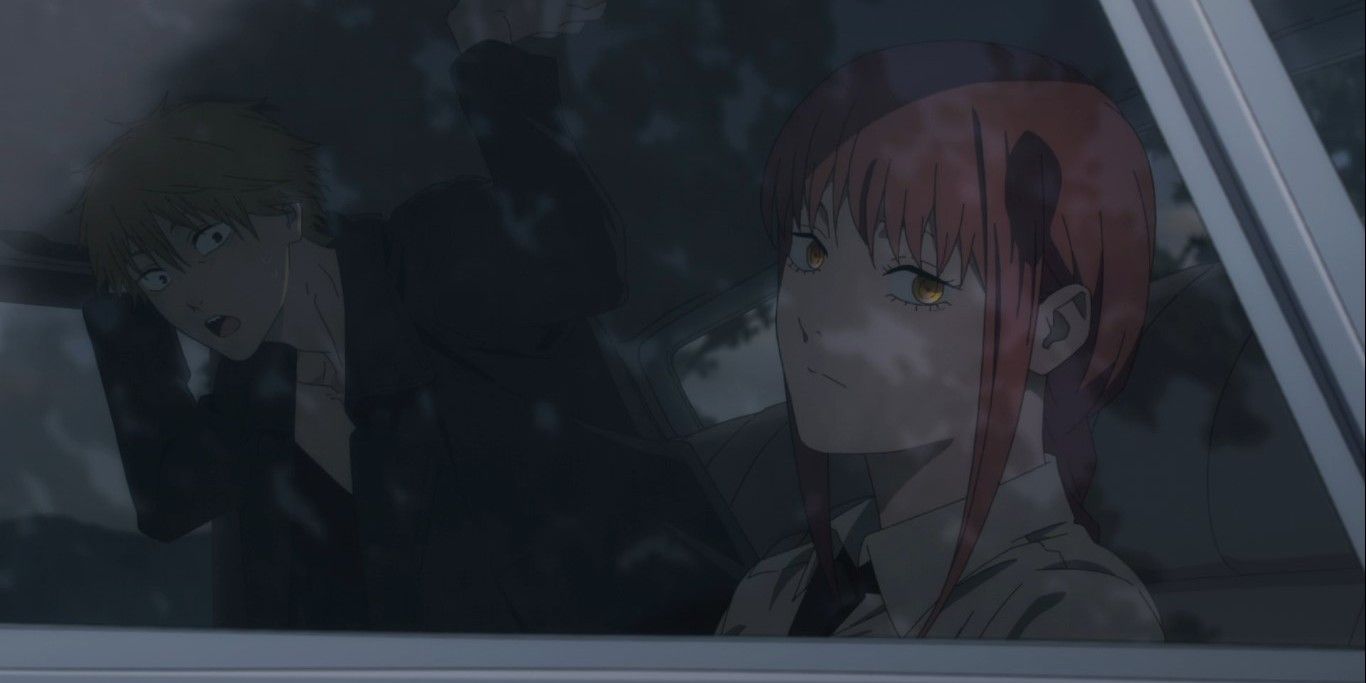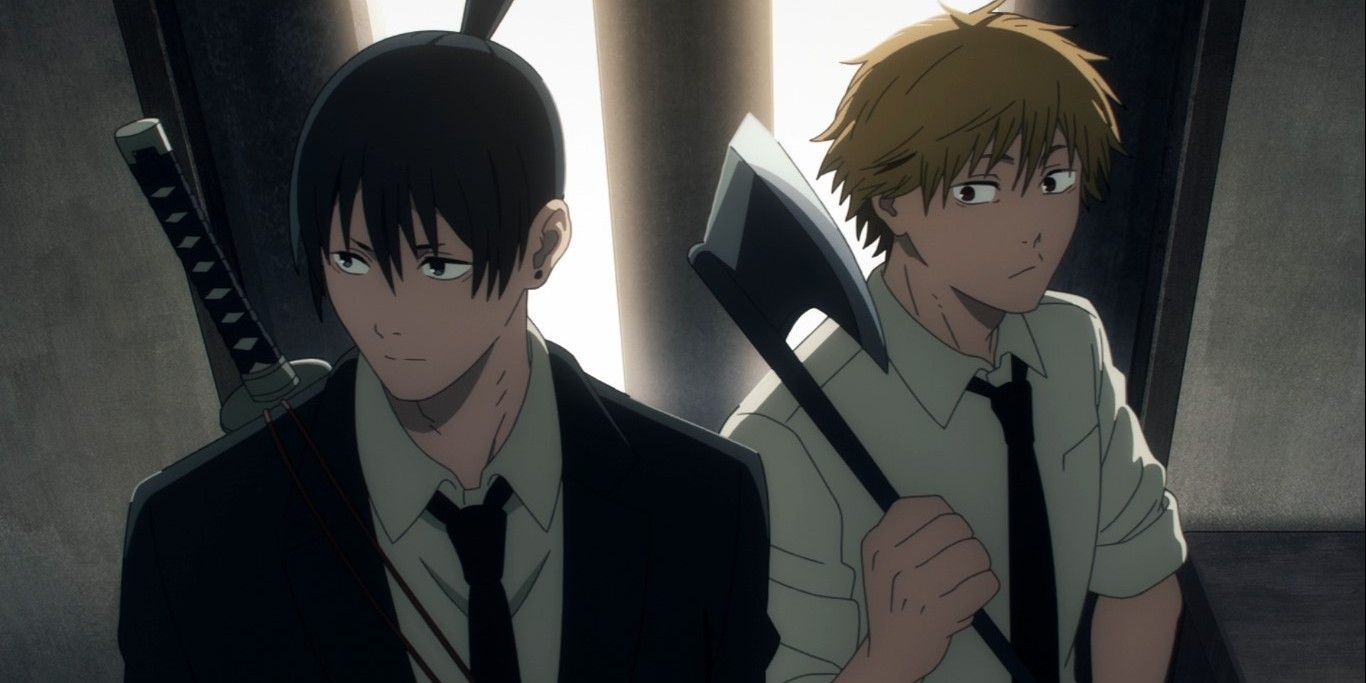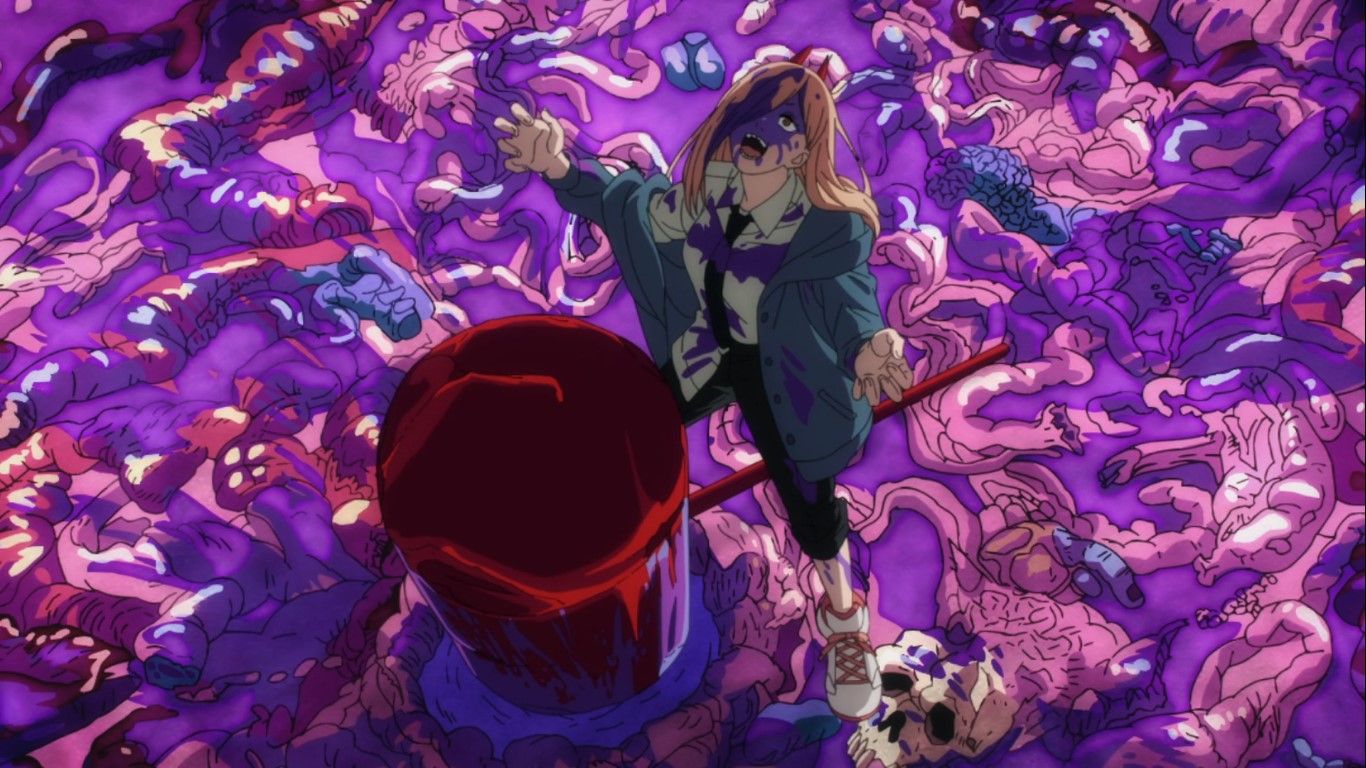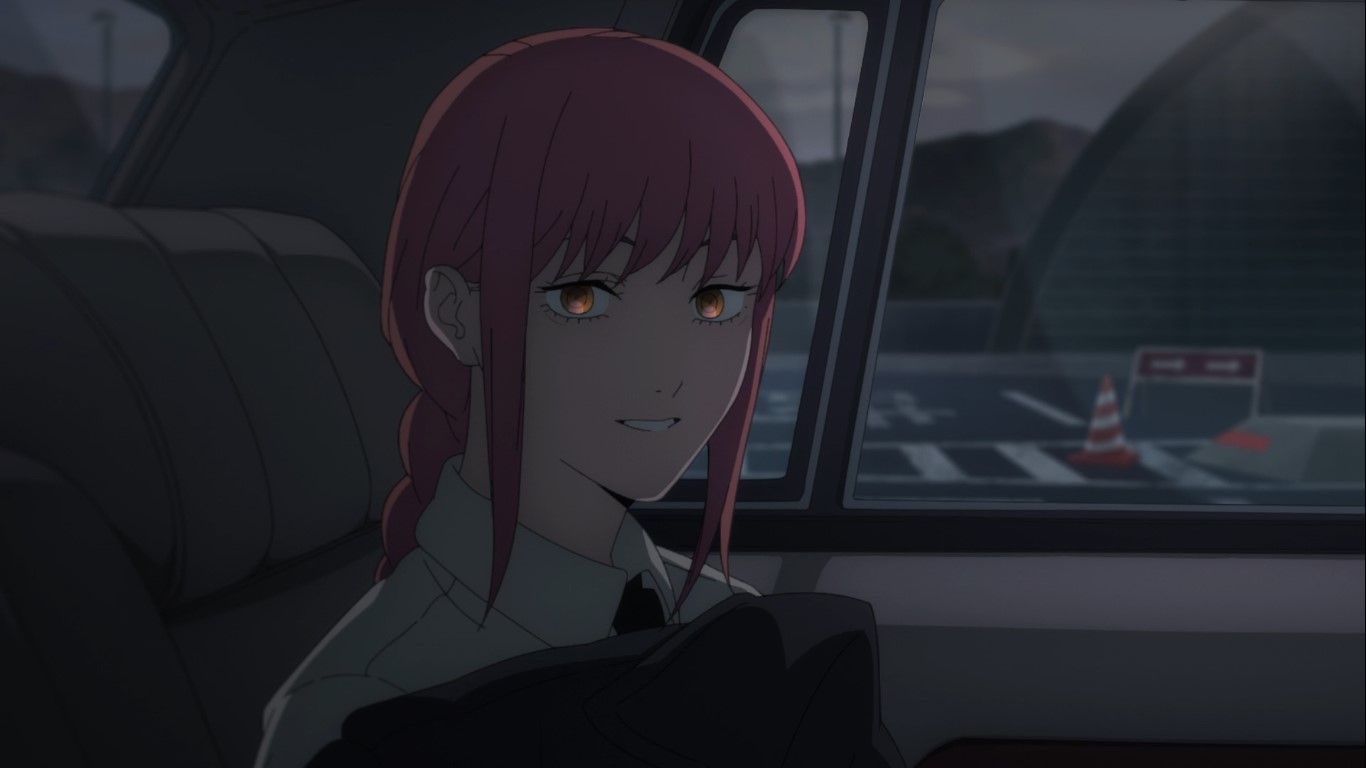When a series is hailed as having a groundbreaking pilot, its second episode tends to pivot back into the tropes of its genre contemporaries and inspirations. Such is the case for Episode 2 of Chainsaw Man, which takes a step back from the stark horror vibes of its premiere to introduce an interesting set of supporting characters and detailed worldbuilding, both of which are staples for fantastical shows in the shonen demographic. However, Episode 2, "Arrival in Tokyo," also features some clichéd personality development for its protagonist Denji, which could, if handled poorly, lead to some toxic ideologies in its future.
Episode 2, "Arrival in Tokyo," starts Denji's journey into the world outside of the slums he grew up in. It initiates him into his new life as a civil servant operative in Japan's Public Safety Devil Hunters and introduces him to his coworkers: Makima, the alluring but ominous woman who found him post-transformation; Aki Hayakawa, a stoic agent with a personal hatred for Devils; and Power, a type of Devil known as a Fiend who inhabits the body of a human. As Denji comes to enjoy his newfound standard of living, he also learns more about his particular predicament and the society that he now finds himself in.
To accommodate this exposition, Chainsaw Man slows its pace considerably. In place of hard-hitting Devil hunting action, Episode 2 tantalizes its viewers with Denji's new comrades, each of whom possesses obvious depth to their characters. Aside from the potential for intriguing backstories, each of them reflects an unsettling worldview that reveals the sort of community that Denji is now joining.
Makima, who takes Denji in as her ward and employee, treats him more like a pet than a human, making it apparent that she is keeping him only for his utility as a Devil Hunter and will not hesitate to put him down if he steps out of line. Conversely, Aki sees Denji as a blight, both because of Denji's unique existence as a human-Devil hybrid and his surface-level ambitions. Power, who comes closest to being like Denji in terms of origin, shows little regard for Denji, seeing him as a means of finding Devils that she can massacre for the sake of satiating her own bloodlust.
As fascinating as the characters are for designs and concepts, it is their dynamic with Denji that is the most scintillating. Studio MAPPA once again employs masterful use of lighting to highlight Denji's interactions with them. When they show him kindness by giving him clothes to wear or paying for the first decent food he's ever had in his life, they are portrayed in a warm and homey glow, contrasting them with the shady characters who used and abused him in his previous life. This tenderness is called into question when they freely state how they really feel about Denji, shrouded in shadows that are visually juxtaposed against those same rays of light.
In this way, Chainsaw Man emphasizes some cynical views on certain spheres of society. Despite being filled with nightmare monsters who thrive on bloody murder, its most unnerving elements are present in the world's institutions. While Denji cherishes the civil decency he is now privy to, nobody fills the role of a true friend like Pochita did, even though Pochita was a Devil. This works as a critique of bureaucracies that see their workers and constituents as resources. Alternatively, it could be interpreted as an insight into how people turn inhumane when exposed to longstanding stress, like that of being surrounded by vicious demons every day.
Still, in the midst of this cold setting, there is some warmth to be found. Denji's new lease on life allows him to partake in everyday gratifications that previously seemed like a luxury to him. The most endearing moments of the episode feature him singing nonsensically in the bathtub or slathering toast with every spread he can find. These snippets are always flooded with bright colors, underlining the wholesome joy that only someone who has gone without such privileges can experience.
Regardless, some of Denji's personality traits make an otherwise lovable character into a stereotypical bro. Once Denji finds his immediate needs met, his goals quickly shift to focus on the opposite sex. Romantic and sexual interest is natural, but when faced with the desire to forge a new goal, Denji chooses to objectify the only women in his life. While Makima is the initial target for this, his eyes deviate to Power's chest immediately after meeting her, and he even disobeys orders during a hunt in order to acquire some erotic magazines.
This sort of conventional hypermasculinity feels like a step back from the more nuanced characters that are present in many other shonen series. This is not to say he should be shamed for such urges. It is understandable that Denji, who was previously deprived of typical pleasures, would long for physical affection. The harmful effect is that it makes light of female objectification and reinforces the idea that men only have one thing on their minds. Nevertheless, this is likely set up for the series to later subvert expectations, as Denji and those around him prove themselves to be more dynamic characters. Hopefully, he will grow into a refreshing take beyond a simple rehash of a teenage boy, recalibrating to fit the enthralling setting that surrounds him.
Chainsaw Man streams on Crunchyroll weekly, with new episodes airing every Tuesday.




